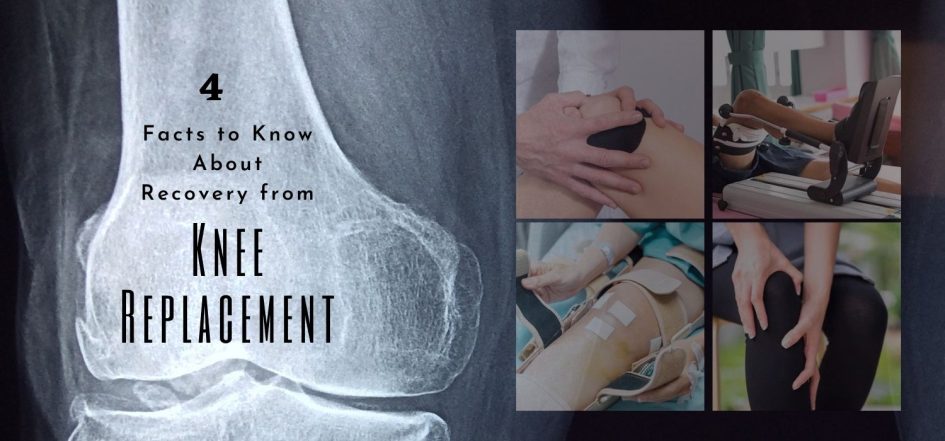When is Knee Replacement Operation Required?
As the largest joint of the body, the knee is responsible for many significant movements and functions of our daily lives. These are the stress-bearing joint which supports the body’s weight, and allow us the flexibility to squat, kick, and perform different kinds of motions. For an active person, knees play an even more critical role. Because of all these functions of the knees, osteoarthritis and other joint diseases are a major concern. A large portion of the adult and elderly population of the world is suffering from knee pain. At times, the pain can be too severe and restricts movement. The person experience trouble in performing everyday tasks. In this situation, the doctor might recommend a knee replacement operation.
It is a common orthopedic procedure. Surgeons have performed it for decades.
With the improvement in technology and surgical methods, it has become a safe and effective option for the treatment of knee-related problems. However, it is a major operation with a considerable recovery period and some potential risks.
The surgery is recommended when the non-invasive treatment options fail to improve the patient’s quality of life.
A serious knee injury or severe arthritis of the knee is the most common reason for having this operation. In severe arthritis, the cartilage may get extremely worn. A joint replacement solution is one effective solution for relieving the knee pain and reinstating the range of motion.
What is Knee Replacement Surgery?
Knee replacement surgery involves the removal of the damaged knee parts and placement of an artificial prosthetic or implant. The implant includes parts made of metal or plastic with a spacer to cushion these parts. The surgery restores the knee function with a seamless and painless movement. The minimally invasive approach has even provided the advantage of the short recovery period, lesser risk of complication, minimal scarring, and lesser post-operative pain.
India is a mega-hub when it comes to healthcare practices and knee replacement is one of the most successful and commonly performed surgeries by the surgeons. The cost of knee replacement surgery in India is highly affordable in comparison to several other countries. This makes it a very lucrative option for an international patient, as they can save a significant amount of money on the whole treatment.
However, patients must gather important information before undergoing this major surgical procedure, especially about the recovery. Here are some facts that you should know:
1. Pain and swelling after the surgery
The patient will experience a certain amount of pain and swelling following the surgery. Every person has a different level of pain tolerance and may have different experiences. Joint replacement surgery involves cutting the bone, muscle, and skin, but the patient will feel nothing during the surgery due to general anesthesia.
After the surgery, the doctor will prescribe painkillers to manage the pain and discomfort. The swelling will be significant for the first 1 to 3 weeks after the procedure. Some swelling around the new knee may last for as long as 6 to 12 months. The pain, however, gradually diminishes over the 3 to 6 months following the procedure.
2. Stringent rehabilitation therapy
Rehabilitation will start as soon as the next day after the surgery. The physical therapist and medical team guide the patient with small activities, such as getting out of bed and walking. After the hospital discharge, rehabilitation will continue with outpatient physical therapy sessions.
It is an essential part of the recovery and for the success of the operation. A well designed rehabilitative treatment plan helps patients regain strength, flexibility, and function of the new knee. It will also help reduce pain and swelling more quickly and aid in preventing certain complications, such as the dislocation of the implant and development of excess scar tissue which prevents proper joint function.
3. Rehabilitation will be lengthy
Recovery and Rehabilitation may possibly take about 3 to 6 weeks. The patient will need medications, physical therapy, and follow-up appointments with the doctor to ensure proper recovery and healing. It is advisable to plan for ahead and make your environment safe for the recovery period.
One must also have all the help and support at home or even when going out. Driving will be off-limits for a few weeks and you must have a person to drive you. A lot of activities like heavy weight-lifting, strenuous exercises, and contact sports are prohibited for a time period. It prevents the possibility of damage to the new knee.
4. Recovery is quick
Depending on the type of procedure, the patient may spend 3 to 5 days at the hospital after the knee replacement. The patients can stand and walk before they get discharged from the hospital. It’s a recovery benchmark. Although they may need to use a walker or crutches to get around, the new knee will gradually allow more independent movement.
The patient will be able to climb a few stairs and perform normal daily tasks on their own within a few weeks post-operatively. This is considering they follow the rehabilitation program and perform the prescribed exercises safely.

Leave a Reply